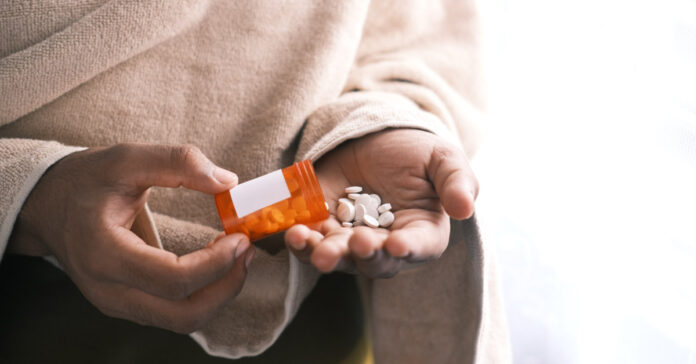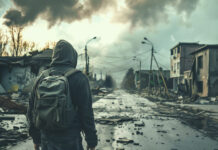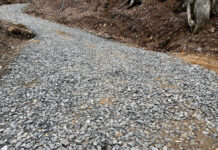This is the second part in our two-part article on diseases that might be problematic for preppers after a massive catastrophe. We recommend you read Part One first.
Common Childhood Diseases
Most of us are vaccinated against things like mumps, measles, rubella, diphtheria, pertussis, polio, and tetanus. Kids today get these vaccinations and others unavailable when I was born, including hepatitis, HPV, and chickenpox.
Since most people are vaccinated, we should have a few good years without outbreaks after the SHTF. However, after a global disaster that knocks us back to the 1880s, new babies won’t have vaccinations. As the unvaccinated population grows, there could be a slow re-emergence of some of these diseases. It may take years to spread to pre-vaccination level, but if our recovery is slow, the rate of infant and child morality rise, in part because of these diseases.
The good news is that in the initial stages of a disaster, there is likely to be little travel. If you are in an isolated area and make contact with a limited number of people, post-apocalyptic newborns are unlikely to get exposed to these old and almost-eradicated diseases. While diseases such as polio and measles see occasional outbreaks in the U.S., they are usually the result of immigrants and visitors from third world countries that lack the same vaccination programs we require. Once it does spread, it should spread slowly due to no air travel.
The Flu, Common Cold, Strep Throat, COVID and More
All the annoying, recurring common illnesses that infect us today will not stop just because the world as we know it has come to an end. We can hope that a lower population with less travel and crowding will mean the diseases spread more slowly. (For example, it took the bubonic plague several years to across Europe while COVID did it in weeks.)
We might also expect that without schools that host hundreds or thousands of kids and jobs where hundreds of adults interact, both common and rarer diseases might spread more slowly or not at all. If survivalist live in isolated pockets, it is likely that some kind of outbreak in Idaho will never make it to a pocket of preppers in Missouri or vice versa until some sort of interstate trade resumes. As the recovery gains speed, and movement about the country becomes possible again, expect the downside of this progress to be the spread of disease for which the young may not have built up immunity.
The best advice for treating common viral illnesses such as cold and flu is to treat the symptoms with existing stocks of over-the-counter medications. Once they are gone, you will have to use herbal remedies.
For strep throat and other bacterial illnesses, an antibiotic should be used if the illness persists. Strep Throat it can lead to scarlet fever, especially in children under 16. Scarlet fever is easy to diagnose because a bright red rash that covers most of the body. Scarlet Fever should be treated with an antibiotic because it can damage vital organs if untreated.
Bronchitis and Pneumonia
Unfortunately, the Flu and even catching a cold can lead to bronchitis or pneumonia. In most cases, these are viral, so don’t waste your precious stock of antibiotics on them. Your best bet is to avoid allowing a milder illness to worsen and spread into the lungs. This is best done by allowing the sick individual to rest and recover, no matter how much the family or prepper group needs them to work.
Again, treat the symptoms to the greatest extent possible.
Sexually Transmitted Diseases
There is a long list of sexually transmitted diseases, some of which have infected humans for centuries. Rather than list the many and varied diseases here, I’m going to warn you that there will be a lack of treatments after the SHTF. Syphilis, for example, will eventually destroy your brain and spinal cord. Others, including HIV, will be uncontrollable without modern medicine, and lead to death.
Without treatment options, prevention is your best bet. That means using condoms, keeping it in your pants, or having a monogamous relationship.
Bug-borne Illnesses
We’re probably all familiar with Lyme Disease and Rocky Mounted Spotted Fever, which are spread via ticks, but let’s not forget old favorites like Malaria and Yellow Fever, which are spread by mosquitos. As your stockpile of DEET or permethrin dwindles, you may find the likelihood of catching some disease spread via mosquito or tick grows. Your best prevention might be physical barriers such as mosquito netting or frequently checking yourself and other members of your party for ticks.
Eradicated Diseases
Tuberculosis, or TB, is almost eradicated in the U.S. and Smallpox is supposed to be eradicated globally. TB is much like typhoid in that you are unlikely to catch it here, although there are occasional cases in large cities, especially among the homeless and users of intravenous drugs. Most TB cases are drug resistant, so the chance of treating it after the fall is almost non-existent.
Leprosy, also known as Hansen’s Disease, has been around since Biblical times. While rarely seen in the U.S., there are still a couple hundred thousand cases per year around the world. Treating it takes a six- to twelve-month course of three drugs, so treatment post SHTF is going to be a non-starter.
These three illnesses are so rare in the U.S. that it is highly unlikely you will run across them after the collapse. Instead of worrying about these, and things you can’t treat like heart disease and cancer, your best bet is to focus on minimizing exposure to communicable diseases, staying strong, well fed and healthy, and concentrating on the more common ailments we can treat.
General Guidelines
Here are a few general suggestions that can help you and yours minimize the danger of infection or illness:
- Maintain good hygiene. Wash your hands, your utensils, food prep areas, your clothes and your body. This will also minimize or eliminate outbreaks of fungal infections and rashes.
- Brush your teeth. Bad gums and teeth can be paths for illness.
- Cook all raw foods until done. Many meat thermometers display the target temperatures for pork, beef and chicken.
- Have multiple methods of water purification and do not drink raw surface water from streams, ponds, rivers, puddles, etc.
- Treat minor cuts and other open wounds with triple-antibiotic ointment. Bandage or cover to prevent infection.
- Wear footwear that is appropriate and comfortable to minimize injury and blisters. Treat any blisters and hotspots on your feet before they grow worse.
- Avoid close interactions with those outside your group who may carry illnesses or may introduce them to your area of operation.
- Stock your medical kit with appropriate OTC and prescription medications to treat any illnesses already present and those that you may encounter.
- If a group member becomes sick, try to isolate or quarantine them away from vulnerable team members. Minimize spread as much as possible.
- Get and stay in good physical shape and get plenty of sleep. Being as healthy as possible going into a disaster will help you survive and keep your immune system strong.
- Build your emergency medicine library so you can look up illnesses and treatments.
Final Words
There are many things I haven’t covered from common but annoying things like warts to serious problems like strokes and heart attacks, but at 2,600 words, this post is long enough. For more information, buy books like ‘Where There is no Doctor” and other emergency medical handbooks.
As you can see, there are good reasons life expectancy was low 140 years ago, including a rash of childhood illnesses and poor hygiene. Don’t expect miracles in a survival situation, but don’t give up the first time someone gets sick. Your ancestors lived long enough to ensure your spot on this planet; the least you can do is stick around and ensure the safety and security of the next generation.
Disclaimer: Please note than I am not a doctor or medical professional and this article is not medical advice. This information is provided to alert you to what may happen during a hypothetical disaster and to encourage you to become better informed and prepared. If you or someone you know is seriously ill or may have contracted a food-borne or waterborne illness, please seek prompt medical attention.







